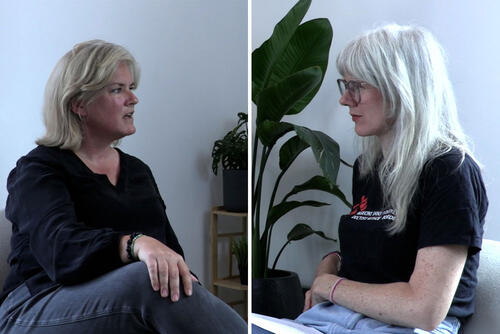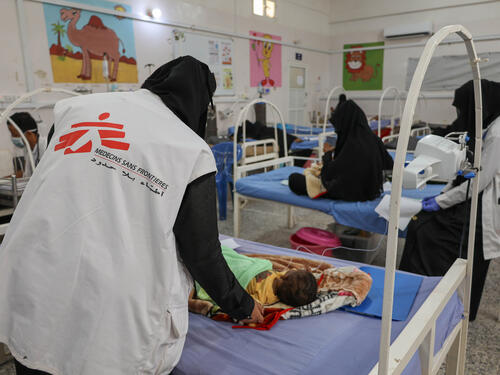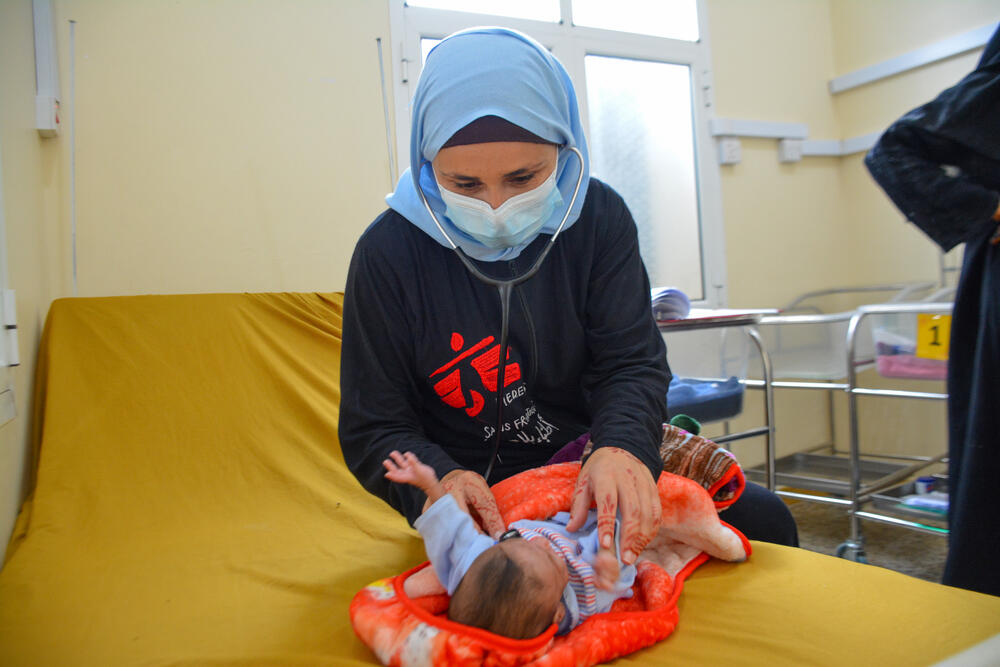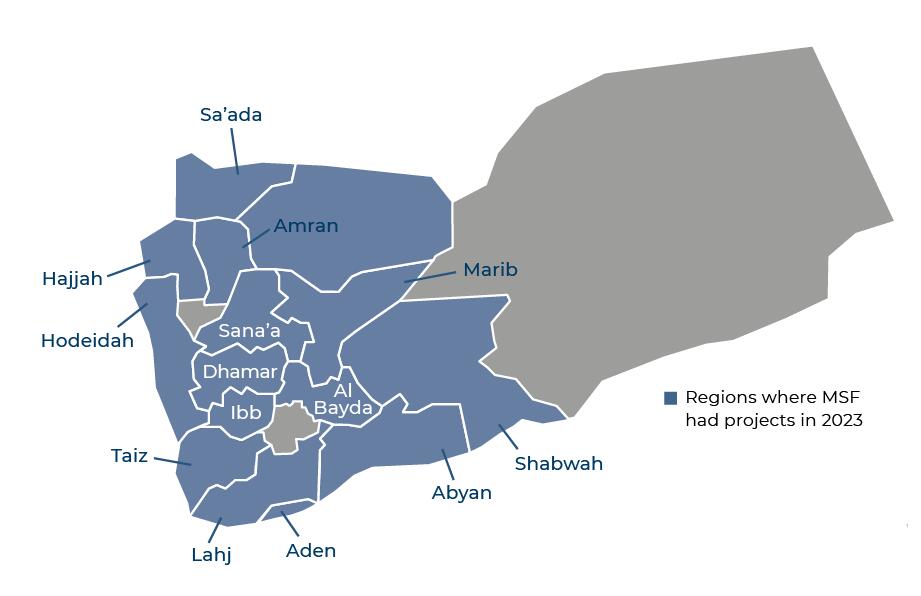Humanitarian crisis in Yemen
Yemen is in the middle of a complex humanitarian crisis driven by a brutal civil war.
The crisis is driven by both armed conflict and the consequent deterioration in the economy, which has had a severe impact on people’s health, living conditions and access to basic services.
More than 4.5 million people have been displaced since the war started in 2015. With an estimated 21 million currently in need of humanitarian assistance, our activities in Yemen are among our most extensive worldwide.
What is MSF doing to help people in Yemen?
With fierce fighting due to the conflict, trauma care and surgery is a vital part of our work in Yemen.
Our teams in hospitals closer to the frontlines regularly respond to mass-casualty incidents, and work throughout the year to increase their capacity to deal with frequent influxes of war wounded and other trauma patients.
As well as treating people injured in the violence, MSF teams are also providing vital care for people affected by the long-term impacts of the war – high rates of malnutrition, low vaccine coverage, a lack of access to maternity services and complex mental health needs.
In 2023, we admitted more than 165,000 people to hospital and performed 26,900 surgical interventions.
232,800
PEOPLE ADMITTED TO HOSPITAL BY MSF IN YEMEN IN 2024
65,600
PEOPLE TREATED FOR CHOLERA BY MSF IN YEMEN IN 2024
38,700
BIRTHS ASSISTED IN BY MSF IN YEMEN IN 2024
Why is Yemen in crisis?
Collapsed health system
Warring parties have destroyed much of the country's public infrastructure, including health facilities. Following the imposition of a blockade by the Saudi-led coalition (SLC) in 2015, import restrictions coupled with high inflation have crippled Yemenis’ access to healthcare and other essential services.
Many of the country’s 50,000 health workers stopped receiving salaries and have consequently left the public health system, forced to look for other sources of income.
Even where medical facilities are operational, most people are no longer able to afford the transport costs to go to them. This means they are unable to seek timely care, and easily curable health conditions are turning deadly when left untreated.
Women often give birth at home and seek care only when complications occur.
Disease
As a result of the war, it is even harder for people to access clean water, dispose of waste and get medical care. Combined with the lack of access to vaccinations, this has left Yemenis more vulnerable to preventable diseases and new epidemics.
There has been a marked increase in preventable diseases such as cholera, diphtheria and measles over recent years, due to low vaccination coverage, poor living conditions and the collapse of the healthcare system.
Since 2021, diphtheria cases have been rising significantly, with a sharp uptick in 2023.
Malnutrition
Malnutrition rates are alarmingly high in Yemen.
Food insecurity and a lack of access to basic healthcare services mean that many children lack the ability to fight off infectious diseases.
Inflation is also another contributing factor, making it increasingly difficult for Yemenis to feed their children and afford the cost of transporting them to hospital.
In 2023, we admitted more than 11,900 children in intensive feeding units.
News and stories from Yemen



What you can do to help people in Yemen
Right now, our teams are treating people caught up in an appalling humanitarian crisis. This is only possible because of donations from people like you.
By giving to our general funds today, you will be helping ensure we can respond to emergencies and conflicts around the world, including in Yemen.
Please donate today to support our teams

